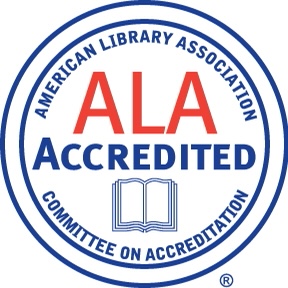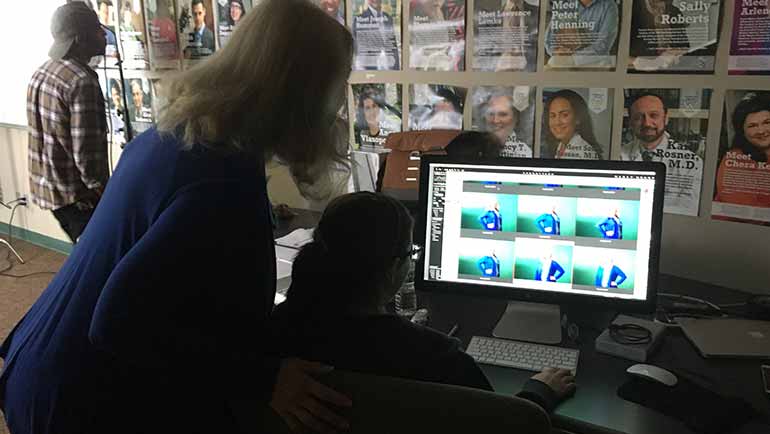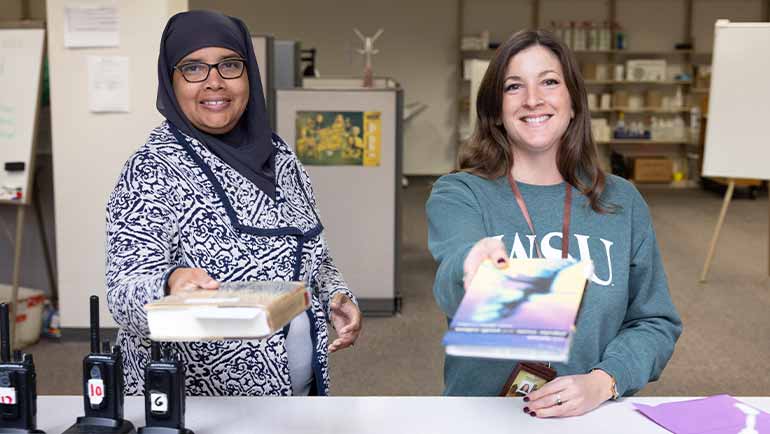Master of Library and Information Science
Our ALA-accredited master's degree in library and information science prepares professionals for leadership roles in libraries and other information organizations.
Our curriculum establishes a practical foundation for all students, while providing individuals the opportunity to customize their coursework with career pathways that suit their personal interests and professional goals.
By emphasizing the core principles and practical experiences of information access, organization, services and support, we educate a diverse student body for professional service to meet the various information needs of their local and global communities.
The MLIS degree can be completed entirely online.

"In this field you are able to help people through their educational experience in a variety of ways. Librarians and archivists help people learn and grow and that's what I find really amazing about the profession." Alumna Melanie Emerson, Dean of the Library and Special Collections for the School of the Art Institute of Chicago
Requirements
Students must maintain a minimum grade point average of 3.0. The MLIS degree requires a minimum of 36 graduate level credits distributed as follows:
- A total of 18 credit hours of MLIS core classes
- A minimum of 18 credit hours of courses within your selected career pathway(s)
- A maximum of 6 credit hours in courses outside SIS may be accepted as cognates
A Plan of Work is a formal statement of the goals and prescribed courses of a student's academic program. SIS requires that a Plan of Work be submitted after completion of nine credits of graduate course work. The plan is prepared in consultation with the faculty advisor and may be organized around one or more areas of specialization. The emphasis may relate to the type of environment in which the student intends to work or to specialized job activities or functions. Faculty advisors will assist the student in devising an optimal Plan of Work that meets the student's academic goals.
All students completing the MLIS degree are required to complete a Graduation Assessment in order to graduate. This assessment provides graduating students with the opportunity to reflect on their cumulative experiences in the program, including both required and elective courses. The contents of the assessment focus on professional skills and knowledge developed during the student's coursework.
Career Pathways
Accreditation
 Wayne State University's MLIS degree has been accredited by the American Library Association since 1967. ALA accreditation is the gold standard for library and information science education in the United States, Canada and Puerto Rico.
Wayne State University's MLIS degree has been accredited by the American Library Association since 1967. ALA accreditation is the gold standard for library and information science education in the United States, Canada and Puerto Rico.
The designation is particularly important since an overwhelming majority of positions in LIS fields require a master's degree from an accredited program as a pre-condition of employment.
You can view the School of Information Sciences' Self Study that was submitted to the Committee on Accreditation of the American Library Association in 2016. The next comprehensive review for the Wayne State School of Information Sciences is scheduled for fall 2024.
Want More Information?
Thank you for your interest in the School of Information Sciences. We would like to provide you with a digital Prospective Student Guide that contains useful information about our academic programs and career opportunities in the information profession.
Please complete this form to receive the guide.
Attend one of our virtual information sessions or contact the School of Information Sciences at asksis@wayne.edu if you have additional questions about the program.











